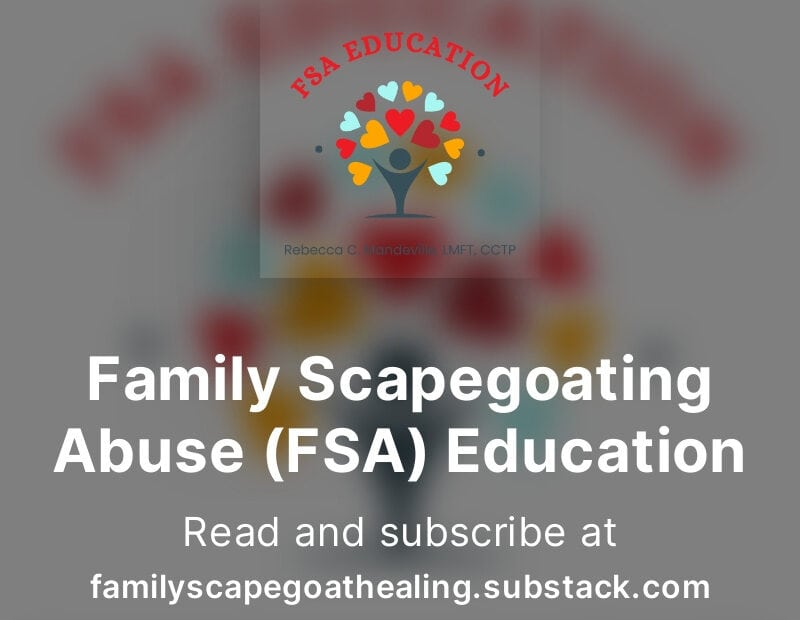First Peer-Reviewed Quantitative Research Study Published on Family Scapegoating Abuse (FSA)
The first peer-reviewed quantitative research study on Family Scapegoating Abuse (FSA) will soon be published – Rebecca C Mandeville will be named as co-author / affiliate on this publication. The study was based on her original research tools that she developed when conducting qualitative studies over the past 15-plus years on the family systems phenomenon she named ‘Family Scapegoating Abuse’ (FSA).
This FSA study conducted by co-author, Research Fellow Dr. Kartheek Balapala (MD/Psych), is a research project on medical students in the copperbelt University of Zambia and will be published by 2025.




